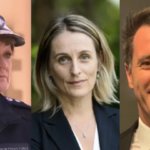New Bill Proposes to Legalise Abortion in NSW

The NSW parliament will soon consider changes to abortion laws which would remove it as an offence under the Crimes Act.
Abortion is currently a ‘serious indictable offence’ in NSW, meaning it can be tried in the higher courts.
However, the 1971 case of R v Wald found that an abortion is permissible if there is an ‘economic, social or medical ground or reason’ upon which a doctor could honestly and reasonably believe the procedure could avoid ‘serious danger to the pregnant woman’s life or her physical or mental health.’
These exceptions mean abortion crimes are rarely prosecuted in the NSW courts.
Legislation
Abortion offences are contained in sections 82 to 84 of the NSW Crimes Act.
Section 82 makes it an offence for a pregnant woman to unlawfully administer a drug or poison, or unlawfully use an instrument to procure a miscarriage.
Section 83 makes it a crime for other people to intentionally cause a woman to suffer a miscarriage using unlawfully administered drugs, poison or instruments.
The maximum penalty for each of these offences is 10 years imprisonment.
Section 84 prescribes a maximum penalty of 5 years imprisonment for anyone who supplies or procures a drug, poison or instrument with the knowledge that they may be used unlawfully to cause a miscarriage.
Queensland also prescribes harsh penalties for those who conduct or assist in abortions. Abortion is a crime in that state unless there is a danger to the woman’s health – and unlike NSW, economic and social reasons cannot be used to justify the procedure.
But politicians from both states are teaming up to change the situation.
Proposed New Laws
Independent Queensland MP Rob Pyne has introduced the Abortion Law Reform (Woman’s Right to Choose) Amendment Bill 2016, which, in his words, “simply moves terminations, a medical procedure, into the medical arena, and out of the courts”.
The Queensland Labor and Liberal Parties say they will allow a conscience vote on the issue.
In NSW, Greens Upper House MP Mehreen Faruqi has introduced the Abortion Law Reform (Miscellaneous Acts Amendment) Bill 2016 which would remove abortion offences from the Crimes Act.
Major Parties Out of Touch
Both NSW major parties are reluctant to change abortion laws. Premier Mike Baird is expressly anti-abortion, while Opposition leader Luke Foley says he has no plans to repeal the laws if elected. Their conservative views are not, however, representative of the wider community.
In proposing the new laws, Ms Faruqi’s relied on a survey of 1,000 Australians by Lonergan Reseach, which found that 24% were unaware abortion was a crime at all, while 73% supported decriminalisation.
Previous research supports that sentiment. In 2003, 81% of respondents in the ‘Australian Survey of Social Attitudes’ said a woman should have the right to choose whether or not to have an abortion.
Other Jurisdictions
Other Australian states and territories are more progressive:
- The ACT made abortion legal in 2002, provided the procedure is undertaken in a medical facility by a medical practitioner.
- Victoria decriminalised abortion in 2008, making it legal to have the procedure up to 24 weeks of pregnancy. After this period, two doctors are required to agree that termination is in the best interests of the woman.
- Abortion is legal in Tasmania up to 16 weeks of pregnancy, after which two doctors must approve.
- Abortion is also legal in West Australian up to 20 weeks of pregnancy, after which two doctors on a panel of six must agree the woman has a serious medical or psychiatric condition, or that there are severe foetal abnormalities.
It’s Only “Technically Illegal”
As abortion is rarely prosecuted through the NSW courts, it is said to be only “technically illegal”.
However, the fact it is classified as a serious crime is cause for concern, according to Associate Professor Leslie Cannold, who says “I don’t know what ‘technically illegal’ means… if it’s in the criminal code, it’s in the criminal code. Every now and then you’ll get a police officer who didn’t get the memo that this is a law we don’t enforce.”
Ms Cannold points to the case of 19-year-old Tegan Leach, who was prosecuted for having an abortion in Queensland. While she and her partner were ultimately acquitted, they had to endure an 18-month court battle.
Cannold also raises recent reports of a 12-year-old girl who was forced to apply to the Queensland Supreme Court for permission to have an abortion, despite her doctor and parents approving.
She believes the current law reinforces the idea that an abortion is shameful, criminal conduct, stigmatising women who decide to undergo the procedure. She says the law should reflect current community attitudes, and that having the crime on the books makes a mockery of the law.
“One in three women will have an abortion in their lifetime,” she says. “This isn’t a minority issue.”






